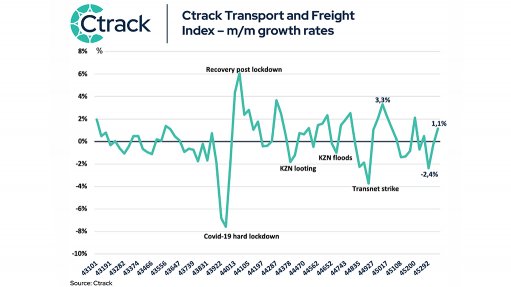The role of human error in cybersecurity breach
This article has been supplied as a media statement and is not written by Creamer Media. It may be available only for a limited time on this website.
According to a study by IBM, 95% of cyber security breaches result from human error. Even though humans make mistakes, this mistake is so overwhelming in cybersecurity that 19 out of 20 cyber breaches result from human error. Another report indicated that human error resulted in a loss of $3.33 million in 2020. Human error in cybersecurity accounts for either unintentional or lack of action that results in a data breach. It includes activities like downloading an infected software and keeping a weak password or compromising the IP address that can be checked on What Is My IP and not updating the software.
Types Of Human Errors In Cybersecurity
The types of human errors in cybersecurity can be categorised into skill-based and decision-based errors. Skill-based errors are generally minor errors that occur while carrying out a daily task. It is often the result of negligence due to inattentiveness, tiredness and distraction. On the other hand, decision-based errors are the ones where the user makes a faulty decision. Decision-based errors result from a lack of knowledge, skills and information about a specific circumstance. It further includes inaction during a particular scenario too.
Misdelivery, including sending information to the wrong recipient, is the fifth most common cause of all cybersecurity breaches. Email services often auto-suggest an email address to increase the user’s convenience, which increases the risk of sending an email to the wrong person if not carefully checked. The other most common reason for a cybersecurity breach is keeping passwords which are extremely popular and are therefore easy to guess. Also, 45% of the users keep reusing their passwords for accessing one service or another. Additionally, users also save these passwords in a careless manner which makes it easier to land hands on them.
Updating The Latest Update Is Important
Patching is another issue that threatens cybersecurity. Most cyber criminals look for vulnerabilities in software or operating systems. When the software developers notice such issues, they work on fixing them and send the patches to their users before the loophole can be used to compromise the data. However, when a user engages in inaction and, as a result, does not install the security updates, they risk their level of being prey to cyber criminals.
The WannaCry ransomware attack that took place in 2017 was the result of inaction by the users of Microsoft. The attack affected many companies and organizations and the loss occurred in millions. Interestingly, Microsoft sent its users the patch a month before the attack happened. If the users had updated the software, they could have saved themselves from such a heavy loss.
Physical Security Errors Should Be Taken Care Of
Even though most data breaches result from non-physical security errors, the gravity of physical security errors is massive too. Unauthorised access to a computer or an account can give another user straight access to all confidential information. Physical security errors often take place when a device is left unattended.
Therefore, it is important to take care of both physical and non-physical security errors to prevent data breaches.
Ways To Prevent Human Error In Cybersecurity
The first thing one can do to reduce human error in cyber security is to reduce the opportunities for a cybersecurity attack. The opportunities can be reduced either by privilege control or password management. Secondly, there is a need to impose security-focused culture in the office urgently. A security-focused culture can be ensured by encouraging discussions amongst the different stakeholders and carrying out regular training and workshops to enrich cybersecurity knowledge amongst the employees.
Even though much data has revealed that humans are the weakest link in the cybersecurity breach, it need not be the case. The cybersecurity data breach can be taken care of with the right amount of training and a security-focused culture. With proper precautions, the role of human error in cybersecurity data breaches can be drastically reduced, which is beneficial for both the employees and the businesses. To reduce human error, it is essential first to analyse why human errors are reduced, how such opportunities can be reduced and finally, impart knowledge on cybersecurity hygiene. The easiest way to reduce the cybersecurity data breach is by ensuring a solid password that is not reused and shared.
Comments
Press Office
Announcements
What's On
Subscribe to improve your user experience...
Option 1 (equivalent of R125 a month):
Receive a weekly copy of Creamer Media's Engineering News & Mining Weekly magazine
(print copy for those in South Africa and e-magazine for those outside of South Africa)
Receive daily email newsletters
Access to full search results
Access archive of magazine back copies
Access to Projects in Progress
Access to ONE Research Report of your choice in PDF format
Option 2 (equivalent of R375 a month):
All benefits from Option 1
PLUS
Access to Creamer Media's Research Channel Africa for ALL Research Reports, in PDF format, on various industrial and mining sectors
including Electricity; Water; Energy Transition; Hydrogen; Roads, Rail and Ports; Coal; Gold; Platinum; Battery Metals; etc.
Already a subscriber?
Forgotten your password?
Receive weekly copy of Creamer Media's Engineering News & Mining Weekly magazine (print copy for those in South Africa and e-magazine for those outside of South Africa)
➕
Recieve daily email newsletters
➕
Access to full search results
➕
Access archive of magazine back copies
➕
Access to Projects in Progress
➕
Access to ONE Research Report of your choice in PDF format
RESEARCH CHANNEL AFRICA
R4500 (equivalent of R375 a month)
SUBSCRIBEAll benefits from Option 1
➕
Access to Creamer Media's Research Channel Africa for ALL Research Reports on various industrial and mining sectors, in PDF format, including on:
Electricity
➕
Water
➕
Energy Transition
➕
Hydrogen
➕
Roads, Rail and Ports
➕
Coal
➕
Gold
➕
Platinum
➕
Battery Metals
➕
etc.
Receive all benefits from Option 1 or Option 2 delivered to numerous people at your company
➕
Multiple User names and Passwords for simultaneous log-ins
➕
Intranet integration access to all in your organisation

















